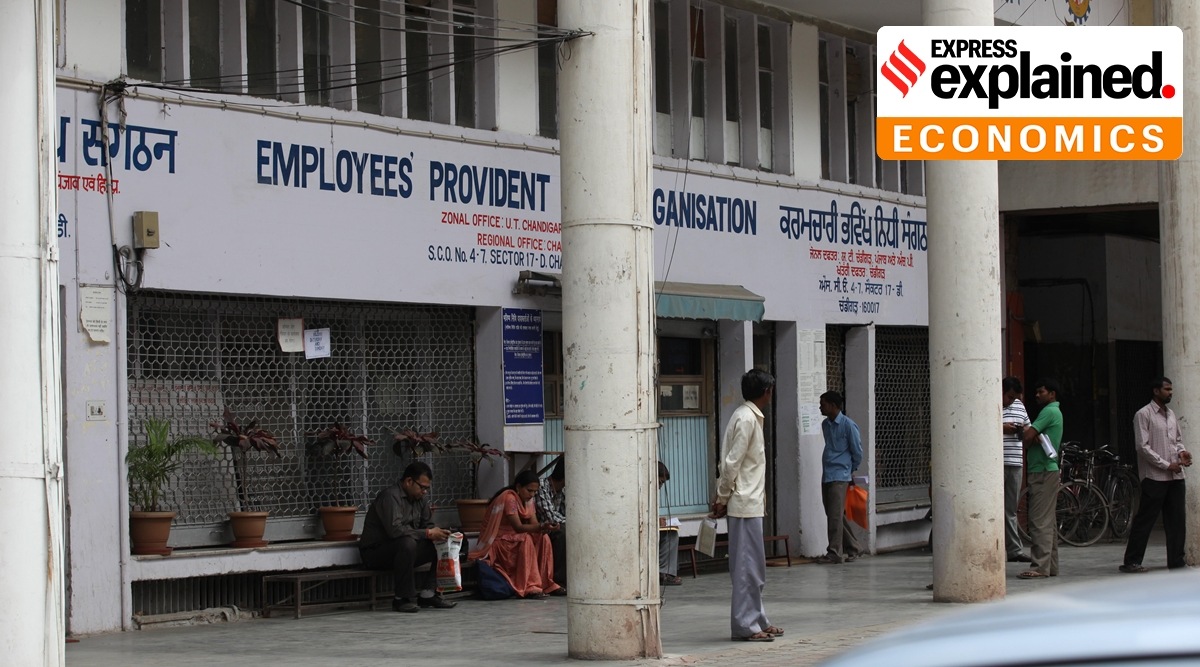What EPFO’s circular says on dues for subscribers opting for higher pension
The field offices will examine if the dues calculated have been fully remitted to the Employees' Pension Scheme (EPS) account in due months or are in the provident fund account.
 The field offices will examine if the dues calculated have been fully remitted to the Employees' Pension Scheme (EPS) account in due months or are in the provident fund account. (Express Archive Photo)
The field offices will examine if the dues calculated have been fully remitted to the Employees' Pension Scheme (EPS) account in due months or are in the provident fund account. (Express Archive Photo) In a fresh circular, the Employees’ Provident Fund Organisation (EPFO) has directed its field offices to calculate dues for its subscribers opting for the higher pension option and the corresponding adequate/inadequate balance in the provident fund, which may need to be diverted to the pension fund.
What does the latest EPFO circular say?
Dues will be calculated based on the fact that 8.33 per cent of employer’s share on higher pay from November 16, 1995 or from the date the pay exceeds the wage ceiling, and 1.16 per cent of employer share on higher pay above Rs 15,000 per month will be calculated towards increased pension contribution.
The field offices will examine if the dues calculated have been fully remitted to the Employees’ Pension Scheme (EPS) account in due months or are in the provident fund account. Or, if the dues have not been remitted to the EPS but contribution on higher wages has been fully remitted to the EPF and there is inadequate balance in the provident fund account.
The interest to be charged on dues will be calculated based on the interest earned by the members on their PF accumulations, the circular said. Accounting adjustments will be made for diversion of funds from provident fund to pension fund if the subscriber opts for higher pension. The field officers will inform the pensioner through the last employer that the estimate of dues has been received and then take his/her consent to divert funds from provident fund to pension fund. The method of computation of pension will come through subsequent circular, the EPFO said.
What did the EPFO state earlier?
Last week, the EPFO extended the last date for applications for higher pension to June 26. In its previous circular, the EPFO had said that the additional contribution of 1.16 per cent of basic wage for subscribers opting for higher pension will be managed from employers’ contributions. “The spirit of the EPF & MP Act as well as the Code do not envisage contribution from the employees into the pension fund. Accordingly, keeping in mind the letter and spirit of the EPF & MP Act and the Code, it has been decided to draw 1.16% additional contribution from within the overall 12% of the contribution of the employers into the provident fund. This provision is retrospective in nature in line with the directions given by the Hon’ble Supreme Court,” the Labour Ministry had said.
At present, the government pays 1.16 per cent of basic wages of up to Rs 15,000. The employers contribute 12 per cent of basic wages under the EPFO, out of which 8.33 per cent goes to EPS and the remaining 3.67 per cent is credited into the Employees’ Provident Fund. The EPFO members who are opting to contribute on their actual basic wage higher than the threshold of Rs 15,000 per month will not have to contribute this additional 1.16 per cent towards EPS but instead it will go from the employer’s share.
An EPFO official said this has been done keeping in mind that contributions from both sides of employers and employees should not exceed 12 per cent.
The Supreme Court in a ruling on November 4 last year had upheld the amendments to the Employees’ Pension (Amendment) Scheme, 2014, implying another chance for employees who were existing EPS members as on September 1, 2014 to contribute up to 8.33 per cent of their ‘actual’ salaries — as against 8.33 per cent of the pensionable salary capped at Rs 15,000 a month — towards pension.
For the 1.16 per cent contribution in EPS, currently done by Government of India, the Court had held the amendment requiring members to contribute this amount for salary exceeding Rs 15,000 a month as ‘ultra vires’, suspending the operation of this part of the judgement for six months “so that the legislature may consider the necessity of bringing appropriate legislative amendment on this count”.
- 01
- 02
- 03
- 04
- 05






































